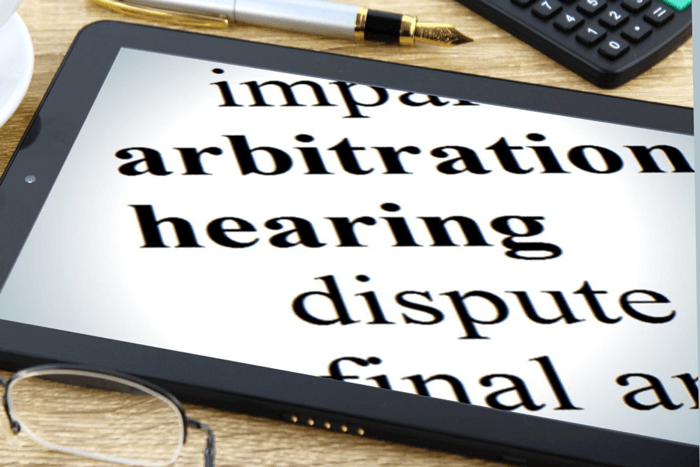Employers and Universities: Work with us?

What to do if you have an employment dispute
Things don’t always go well at work, and sometimes employers and employees can fall out.
In situations like this, there are various things that employers and employees can take to resolve the problem. It’s important to know where you stand so you can be prepared.
In this article, we take you through the basics of employment disputes.
'Know how to handle problems at work early in your career'
Types of employment disputes
There are two basic kinds of employment disputes:
- Grievances: Where you have a concern, problem or complaint about your employer.
- Disciplinary: Where an employer has a concern about an employee, to do with their work, behaviour or because they’re taking too much time off work.
Often these concerns are tackled informally through a casual conversation. If you have an issue with your employer, it’s recommended that the first thing you do is have a casual chat with a trusted manager who is unconnected with the concern.
For example, you may wish to talk to your line manager (immediate boss), but if the concern is linked to them, it may be better to talk to someone else, such as an HR manager.
Although the chat may be casual, you should make sure you are prepared for it by noting down:
- What the problem is
- What evidence is there that it is caused by your employer
- What outcome you would like to achieve
Before you arrange any meetings, you should look at your employee handbook or the HR pages of the company website, which should explain your employer’s disputes process for both grievances felt by employees and disciplinaries conducted by the employer. If you can’t find this information, ask the HR team.
Similarly, if your employer has an issue concerning your work, behaviour or absence, they should aim to raise it informally with you before taking it any further.
Making a grievance
Sometimes employment disputes can't be resolved through an informal chat. If this is the case for you, you can submit a formal grievance. The aim is to resolve the problem as early and with as little disruption as possible.
1. Write a letter to your employer
Set out what you said in your first, informal meeting. Explain the nature of your grievance, what evidence you have that the problem is caused by your employer and what outcome you would like to achieve as a result of this process.
2. Discuss the grievance in a meeting
In your letter, request a formal meeting to discuss the grievance. As a result of the meeting, your employer will make a decision about what to do based on your grievance.
You are entitled to have someone in the meeting with you. This could be a colleague or trade union representative (“union rep”) or, depending on what it says in your contract, a family member of worker from the Citizens’ Advice Bureau. Read this article about trade unions to find out how they can help you.
3. Appeal your employer’s decision
If you are unhappy with the decision your employer has made, you can appeal their decision. The disputes process outlined in your employee handbook should tell you how you can appeal the decision. If it’s unclear, ask the HR department for advice.
The important things to know are:
- Who to submit your appeal to
- How long you have to submit your appeal
- Any meetings that are required as part of the appeals process and how these will be run
You are entitled to have someone present during any appeals meetings.
4. Meditation, conciliation and arbitration
If you are unsatisfied with the outcome of the appeal, there are three approaches you can take:
- Mediation: You and your employer talk with an independent person or group of people and try to come toa solution.
- Early conciliation: If you think you can make a claim to an employment tribunal.
- Arbitration: A separate, impartial person or team makes a decision which, once you have heard the decision, you and your employer can agree is legally binding.
The second step, early conciliation is a final attempt to resolve employment disputes before going to a tribunal.
It is handled by a public body called Acas and it involves trying to reach an agreement to avoid going to a more formal tribunal. The agreement could be a settlement by your employer or an agreement by them to treat you differently.
5. Employment tribunal
Some employment disputes call for an tribunal. An employment tribunal is a public, legal hearing, a bit like a trial but not quite that formal.
You can make a claim to an employment tribunal if you feel you have been treated unlawfully and all else has failed, including early conciliation.
Unlawful treatment includes:
- Unfair dismissal
- Discrimination
- Unfair deductions from your pay
A tribunal is presided over by a panel consisting of an employment judge, someone representing employer organisations and someone representing employee organisations.
If you lose you will have to pay the costs. If you win, the employer will pay the costs. This means you should be confident you will win. If you’re in a trade union, they may be able to cover any costs associated with the tribunal.
We hope you will never have to use the information in this article but that it is useful if you do.
Here are some more articles to help you at work:
- What is a trade union?
- What is equality in the workplace?
- Sexual harassment at work
- Workplace rights for 16-18 year olds
Image credits
Lead image by Alpha Stock Images
